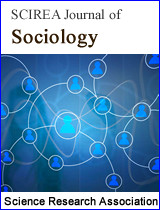Patronage, Ideology and Manipulation: The Translation of Ao-men Hsin-wen-chih During the First Opium War
DOI: 236 Downloads 12952 Views
Author(s)
Abstract
Abstract: During the special historical period of July 1839 to November 1840, Lin Tse-hsu and his translator team selected and translated some articles from foreign newspapers such as The Canton Press, The Canton Register, The Canton Miscellany and The Chinese Repository into Chinese, which were collected into Ao-men Hsin-wen-chih (Macao News). This article explores the manipulation of patronage and ideology over the translation of Ao-men Hsin-wen-chih. As the undifferentiated patron of Ao-men Hsin-wen-chih, Lin Tse-hsu was involved in translator selection, source text selection, adding target-text annotation and he even determined and interacted with the target readers. It is also revealed that under the manipulation of patronage and ideology, the translators rewrote the translation by adopting such strategies as edited translation and adaptation, foreignization and domestication, uglification and dwarfing.
Keywords
Keywords: Ao-men Hsin-wen-chih; ideology; manipulation
Cite this paper
WANG Hai, XIAO Li,
Patronage, Ideology and Manipulation: The Translation of Ao-men Hsin-wen-chih During the First Opium War
, SCIREA Journal of Sociology.
Volume 3, Issue 4, August 2019 | PP. 145-158.
References
| [ 1 ] | Association of Chinese Historians. Collection of Papers on the Modern China: Opium War Volume 2. [M]Shanghai: Shenguang Publishing House. 1954. |
| [ 2 ] | Britton S. Roswell (1966). The Chinese Periodical Press: 1800-1912 [M]Taipei: Ch'eng-Wen Publishing Company. |
| [ 3 ] | Fang Hanqi (1996). The General History of Chinese Journalism. [M]Beijing: Renmin University of China. |
| [ 4 ] | Feng Zuyi. Probing into Ao-men Hsin-wen-chih. Guizhou Social Science[J] 2010 (7) |
| [ 5 ] | Lefevere, Andre (1992). Translation, Rewriting, and the Manipulation of Literary Fame. [M]London & New York: Routledge. |
| [ 6 ] | Li Changyin. Translation and Historical Context: the semantic evolution of Yi and its English Translation. [J] Journal of Yunnn Minzu University 2008( 7). |
| [ 7 ] | Lin Tse-hsu. Letters by Lin Tse-hsu[M]Fu Zhou: FuJian People’s Publishing House. 1839/1981 |
| [ 8 ] | Su Jing (2015). Ao-men Hsin-wen-chih (Macau News): Its History, Original, Translators, and Translation. [M]Shanghai: Fudan University Press. |
| [ 9 ] | Tymoczko&Gentzler. Translation and Power. [M] Amherst: University of Massachusetts Press. 1999 |
| [ 10 ] | The Canton Register. [N]. 1839-9.1-30, 1839-7-16. |
| [ 11 ] | The Canton Press. [N]. 1839-10-12, 1840-1-18, 1839-11-9. |
| [ 12 ] | The Chinese Repository. [N]. 1839-9.1-30, 1839-12-26, 1839-10-19, 1839-11-2. |
| [ 13 ] | The Chinese Repository. [N].1841-10-565. |
| [ 14 ] | Venuti, Lawrence. The Translator's Invisibility---A history of Translation. [M]London and New York: Routledge. 1995. |
| [ 15 ] | William C. Hunter. Bits of Old China. [M]London: Kegan Paul, & Co. 1855. |
| [ 16 ] | Wang Hai, Chen Caiyun. On the Translation Strategy and Techniques of Ao-men Hsin-wen-chih Through the Lens of Patron Theory. [J]Journal of International Communication. 2013(3). |
| [ 17 ] | Wang Hongzhi. The Translators in The First Opium War, 1839-1842, Part One: Translators/Interpreters of the British Camp. Studies in Translation History(2011, Vol. 1)[C]Shanghai: Fudan University Press, 2011. |
| [ 18 ] | Wang Hongzhi. Napier and Napeih: Name Translation and Sino-UK Diplomacy Conflict. [J]Chinese Translators Journal. 2013(5). |

